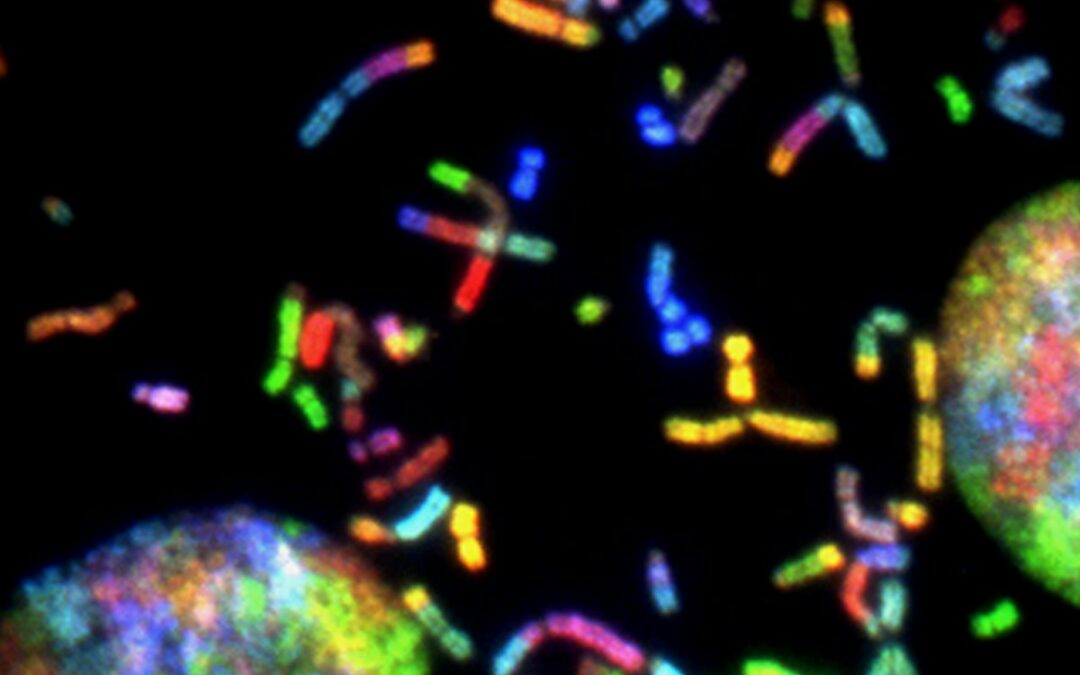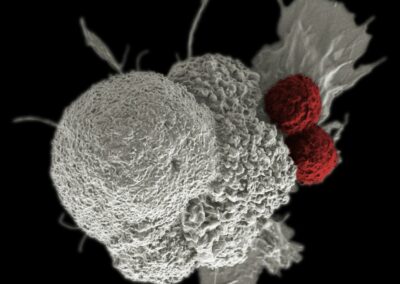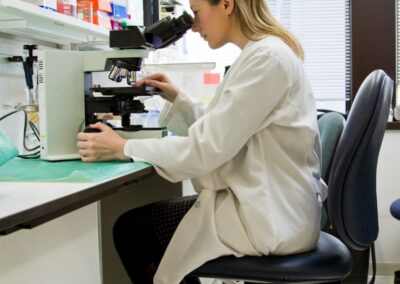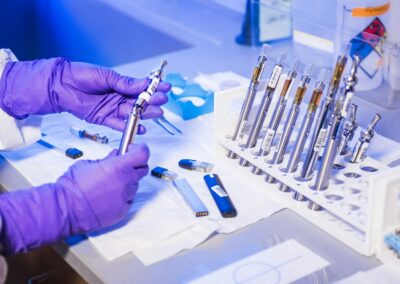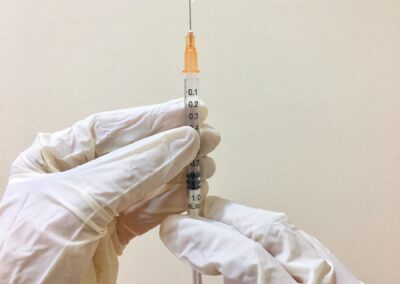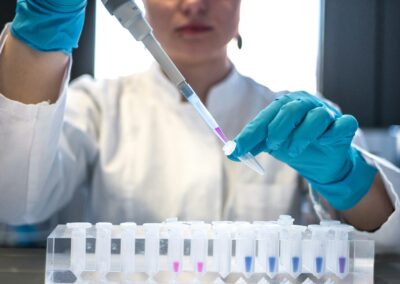Guiding Biotechnology Advancements with Ethical Principles
The Rise of Genetic Augmentation and Its Implications
The rapid advancement of biotechnology has brought genetic augmentation to the forefront, offering unprecedented possibilities for enhancing human capabilities and treating genetic disorders. However, the integration of genetic augmentation in medical and non-medical contexts raises significant ethical questions that require careful consideration. The development of ethical frameworks for genetic augmentation is crucial to guide its responsible use and ensure that technological progress aligns with societal values. In regions like Saudi Arabia and the UAE, where technological innovation is a priority, establishing robust ethical guidelines is essential for fostering trust and acceptance of genetic technologies.
Genetic augmentation involves the modification of an individual’s genetic material to enhance physical, cognitive, or behavioral traits. This technology holds the promise of eradicating genetic diseases, improving human health, and potentially enhancing human abilities. For example, gene editing techniques like CRISPR can be used to correct genetic mutations that cause conditions such as cystic fibrosis and sickle cell anemia. In innovative hubs like Dubai, leveraging genetic augmentation for medical purposes can lead to significant improvements in public health and quality of life.
However, the potential for non-medical applications of genetic augmentation, such as enhancing intelligence, physical strength, or aesthetic traits, raises ethical concerns about fairness, consent, and societal impact. Ensuring that genetic augmentation is used responsibly and ethically requires the establishment of comprehensive frameworks that address these concerns and provide clear guidelines for researchers, practitioners, and policymakers.
Principles for Ethical Genetic Augmentation
Developing ethical frameworks for genetic augmentation involves establishing key principles that guide its responsible use. One fundamental principle is respect for human dignity and autonomy. Genetic augmentation should be conducted with the explicit consent of the individual, and decisions about genetic modifications should be made freely and without coercion. In culturally diverse regions like Riyadh, respecting individual autonomy and cultural values is essential for ensuring ethical practices in genetic augmentation.
Another critical principle is justice and fairness. Access to genetic augmentation technologies should be equitable, and efforts should be made to prevent the creation of genetic disparities that exacerbate social inequalities. This includes ensuring that genetic enhancements are available to all segments of society, regardless of socioeconomic status. In progressive markets like the UAE, promoting fairness and inclusivity in genetic augmentation can foster social cohesion and prevent the marginalization of disadvantaged groups.
Transparency and accountability are also vital components of ethical genetic augmentation. Researchers and practitioners should be transparent about the risks, benefits, and limitations of genetic modifications, and robust oversight mechanisms should be established to monitor the use of these technologies. This includes creating regulatory bodies that oversee genetic research and enforce ethical standards. In technologically advanced regions like Saudi Arabia, implementing transparent and accountable practices can enhance public trust in genetic augmentation.
Implementing Ethical Frameworks in Practice
Translating ethical principles into practice requires collaboration among stakeholders, including researchers, healthcare providers, policymakers, and the public. One approach is to establish ethics committees that review and approve genetic augmentation projects, ensuring that they adhere to established ethical guidelines. These committees can provide oversight, offer guidance, and address ethical dilemmas that arise during the research and application of genetic technologies. In dynamic regions like Dubai, fostering collaborative efforts among stakeholders can lead to the development of robust ethical frameworks.
Education and public engagement are also critical for the successful implementation of ethical frameworks. Raising awareness about the benefits and risks of genetic augmentation and engaging the public in discussions about ethical considerations can promote informed decision-making and democratic participation in shaping genetic policies. This includes organizing public forums, educational campaigns, and stakeholder consultations to gather diverse perspectives and build consensus. In regions like Riyadh, where public engagement is valued, fostering an informed and participatory approach can enhance the ethical governance of genetic augmentation.
Additionally, international collaboration is essential for addressing the global implications of genetic augmentation. Genetic technologies transcend national borders, and establishing international standards and guidelines can promote consistency and cooperation across countries. This includes participating in global initiatives, sharing best practices, and harmonizing regulations to ensure the responsible use of genetic augmentation worldwide. In regions like the UAE, which are leaders in technological innovation, contributing to international efforts can reinforce their commitment to ethical practices and global leadership.
Conclusion
In conclusion, developing ethical frameworks for the responsible use of genetic augmentation is crucial for guiding the advancements of biotechnology and ensuring that it aligns with societal values. By establishing principles such as respect for human dignity, justice, fairness, transparency, and accountability, stakeholders can promote the ethical use of genetic technologies and prevent potential abuses. For regions like Saudi Arabia and the UAE, embracing ethical frameworks can drive innovation, enhance public trust, and improve the quality of life through responsible genetic augmentation. Through strategic collaboration, education, and international cooperation, the promise of genetic augmentation can be realized ethically, paving the way for a future where technological progress benefits all of humanity.
—
#GeneticAugmentation #EthicalFrameworks #Biotechnology #ArtificialIntelligence #BusinessSuccess #LeadershipSkills #ManagementSkills #ProjectManagement #SaudiArabia #UAE #Riyadh #Dubai

